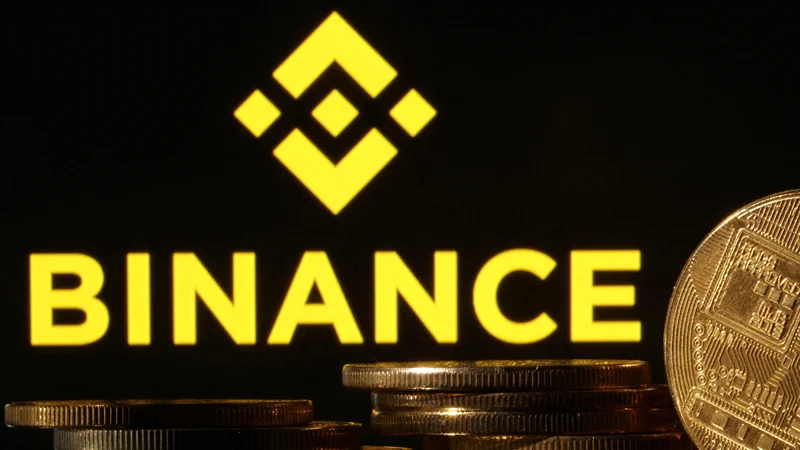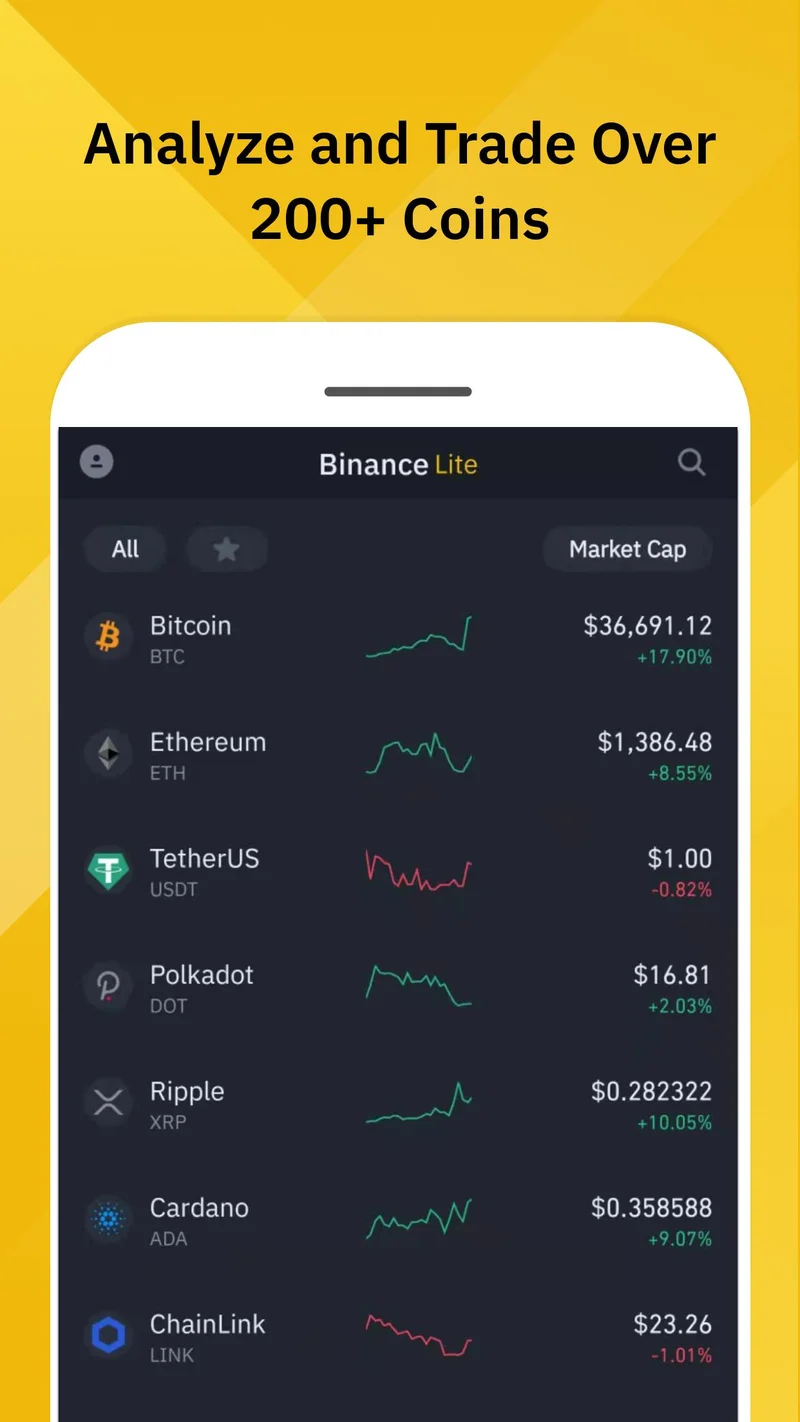Article Directory
An Analysis of a Strategic Surrender: Why Coinbase Finally Listed BNB
The announcement landed with the quiet thud of an inevitable conclusion: Coinbase, the publicly-traded poster child for regulatory compliance in the US, will list BNB, the native token of its fiercest and ideologically opposite rival, Binance (Coinbase to List Binance’s BNB, Signaling Shift in Crypto Exchange Dynamics). The official narrative, predictably, is one of a maturing market, of a “thaw in relations” and a new era of “interoperability.”
This is a clean, palatable story. It’s also a significant misreading of the data.
This decision wasn't born from a sudden spirit of collaboration. It is the logical endpoint of a prolonged strategic standoff, a concession driven not by goodwill, but by the relentless, unemotional gravity of market capitalization and user demand. To understand this move, one must ignore the corporate press releases and instead look at the sequence of events and the numbers that forced Coinbase’s hand. For years, the two exchanges have been presented as a study in contrasts: Coinbase, the buttoned-up, SEC-friendly institution; the crypto exchange Binance, the swashbuckling global giant playing by its own rules. The refusal to list BNB was a core part of Coinbase’s identity—a clear line in the sand. Now, that line has been washed away. The question isn't why they became friends; the question is, what market force became too powerful to ignore?
Deconstructing the "Interoperability" Narrative
Let’s be precise. The narrative being floated suggests this is a voluntary step toward a more connected crypto ecosystem. In reality, it’s a response to an undeniable mathematical reality. BNB is the world’s fourth-largest cryptocurrency by market capitalization (a reported $155.36 billion) and a cornerstone of one of the most active blockchains in the world. For a publicly traded company like Coinbase, whose revenue is overwhelmingly tied to transaction fees, willfully ignoring an asset of this magnitude is not a sustainable strategy. It’s the equivalent of a global stock exchange refusing to list Apple because they don’t like its corporate governance. Eventually, the sheer economic weight of the asset makes the protestation look absurd.
The historical tension between the two platforms was not trivial. It was foundational. Coinbase built its brand on a meticulous, if sometimes frustratingly slow, process of asset approval. Binance, under its former CEO Changpeng Zhao (CZ), embraced a "move fast and break things" ethos, listing thousands of tokens and capturing enormous global market share. This ideological gulf made the exclusion of BNB from Coinbase a symbol of its commitment to a certain standard of regulatory caution.

So what changed? The data suggests Coinbase has been slowly, reluctantly, walking back this position for months. The first signal was the introduction of perpetual futures for BNB on its international platform. This was a test balloon—a way to engage with the asset’s liquidity without granting it a full-throated endorsement on its main spot exchange. Then, on October 15th, came the quiet update: BNB was added to the official listing roadmap. This was the point of no return. And this is the part of the timeline that I find genuinely puzzling, not because of the action itself, but because of what happened next.
The Data Points to Coercion, Not Collaboration
Just one day after Coinbase added BNB to its roadmap, on October 16th, CZ took to X to publicly apply pressure. He demanded Coinbase list more projects from the BNB Chain, explicitly framing it as a matter of reciprocity, noting that Binance had already listed numerous projects from Coinbase’s own Base network. This was not a friendly suggestion between peers. It was a public, strategic power play. A former CEO, still wielding immense influence, was essentially calling out his rival on the world stage, leveraging Binance’s existing support for the Coinbase ecosystem as a bargaining chip.
Was this just a coincidence? It seems statistically unlikely. Why would CZ feel the need to make such a public demand if the terms of the listing were already part of a friendly, back-channel negotiation? A more plausible interpretation is that Coinbase’s hand was being forced, and CZ’s public statement was the final nudge, ensuring the decision was not only made but seen to be made. It reframes the entire event from a proactive move toward "interoperability" to a reactive concession to market pressure, both from users and from a direct competitor.
This is a classic example of market gravity at work. Coinbase could maintain its ideological purity for only as long as the cost of doing so was manageable. But with BNB’s ecosystem generating billions in daily volume—about $1.7 billion, or to be more exact, $1.69 billion in the last 24 hours—the opportunity cost of its absence became too great. Every day BNB wasn't listed was a day that millions in potential trading fees were being left on the table, likely flowing directly to competitors like, well, Binance. The listing isn't a sign of a newfound friendship; it's a financial necessity disguised as a strategic evolution. It’s an acknowledgment that you can’t build a wall around your garden when your customers are demanding the fruit that only grows next door.
The mechanics of the listing themselves are telling. Deposits are restricted to the BNB Smart Chain, a technical detail that serves as a subtle, final nod to the asset’s origins. But the symbolism is far more potent. By allowing BNB onto its platform, Coinbase is implicitly validating the ecosystem it once held at arm's length. It's a move that may enhance BNB’s legitimacy in the highly regulated US market, a development that will surely be useful as Binance works to relaunch its own US-based operations. For Coinbase, it's a pragmatic, if slightly humbling, step to strengthen its own platform by absorbing a piece of its rival's core identity.
A Calculated Concession
Ultimately, this isn't a story about rivals becoming partners. It's an acquisition of a high-demand product that could no longer be ignored. The "interoperability" language is simply the corporate packaging for a decision rooted in competitive survival and revenue optimization. Coinbase didn't list BNB because it suddenly believes in the Binance philosophy. It listed BNB because the numbers on the spreadsheet made any other decision fiscally irresponsible. This is not a thaw; it's a surrender to an inescapable economic reality. The market, as it always does, had the final say.

